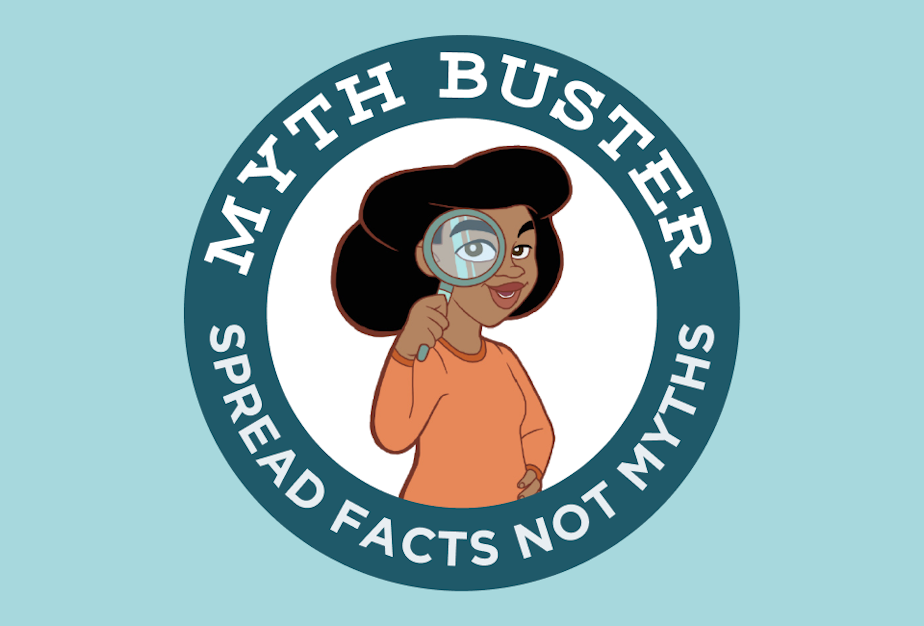Fighting the 'infodemic': Don't repeat a coronavirus lie

Disinformation campaigns aren't only used in the world of politics.
The World Health Organization says the coronavirus outbreak has sparked an "infodemic" -- an overwhelming amount of information online, some of it totally untrue.
Dr. Margaret Bourdeaux is a research director at the Security and Global Health Project at Harvard University. She told KUOW’s Angela King that there has always been disinformation – but there’s a difference now:
Margaret Bourdeaux: States have weaponized disinformation campaigns through social media. And what is meant by weaponized this information is disinformation that is embedded in a strategy to advance the geopolitical goal or some type of other objective, that type of disinformation. It's done in such a way to make it maximally sticky, to make people really believe it. That's the thing that we want to try to combat.
Angela King: How does that work, and what are some examples?
Bourdeaux: So when you want to weaponize this information, there are some strategies. And one of those strategies is to tell a lie that really appeals to people's emotions or appeals to a to a division within a society that's already preexisting. And then you wrap that lie in truth. You put it in the article where most of the information in the article is true, or you put it on a news platform where there are true stories and then you slip in that very salacious, sticky lie. And people are much more likely to believe it when it's surrounded and coated with truth. And then you want to make sure that you are not identified as the purveyor of this lie. You make a surrogate play it or have what the Russians call a useful idiot that will repeat the lie over and over. One of the things that we've learned about combating this type of weaponized disinformation is to never repeat the lie. Don't repeat it, because even if you say this is a lie, people just remember the lie. They don't remember the disclaimer that you've just made.
A generic one that's often used in epidemics is a lie about where the origins of the epidemic. So you'll hear this was invented in a government lab or this was the result of a lab accident -- a country X was developing this virus to be a bio weapon. And that's a really common one. And that one came out in the 1980s around HIV when the Soviet Union generated that lie about HIV being invented in the U.S. Department of Defense Laboratories and as a bioweapon against our African-American and LGBTQ community here in America. That lie lasted 30 years, and people to this day still believe some parts of that lie.
Sponsored
King: I've heard that one before. So what’s the World Health Organization doing to try to fight the coronavirus infodemic?
Bourdeaux: Those of us who've studied this have been really impressed with the steps the WHO has taken. They've created an initiative called EPI-WIN. We know when people hear the truth first that they are more protected, sort of vaccinated, if you will, against disinformation. So you want to get there first. And one of the things that EPI-WIN has done is partnered with social media companies like Google so that when people search online for information about coronavirus, they see reputable, truthful information. The other thing that WHO has done is not repeat the lie, but repeat the truth over and over in very simple, straightforward terms. “Wash your hands. ‘But what about this terrible salacious thing?’ Wash your hands.” That's the answer.
King: How can we as consumers combat misinformation that our friends are hearing. Should I counter it online, in other ways?
Bourdeaux: I think we can take a page from EPI-WIN and the WHO and fight back with the truth. You don't ever want to get into a debate with somebody who's saying wrong information. You can say, well, I've heard that the truth is this and I've gotten that from the CDC website or my state public health website. Stating the truth, but not getting dragged down and arguing the point. Because when you're arguing the point about a lie, you're just repeating a lie over and over again.




